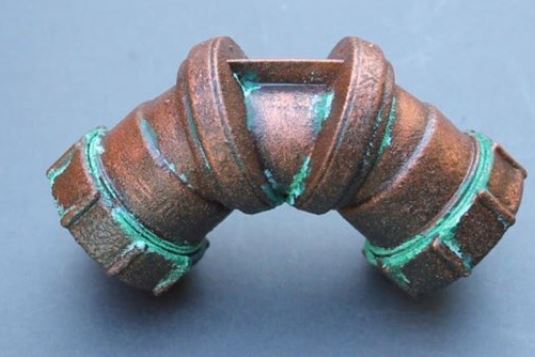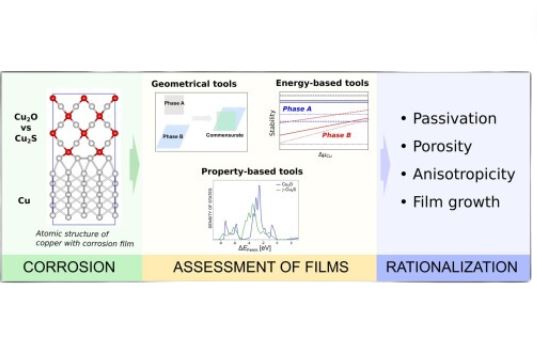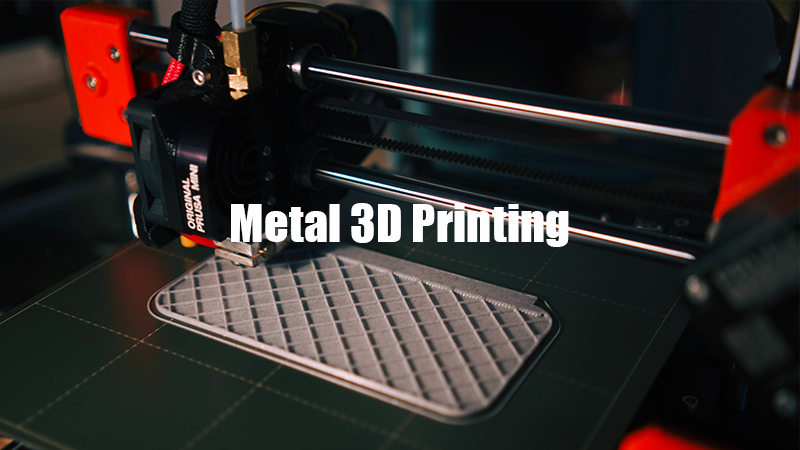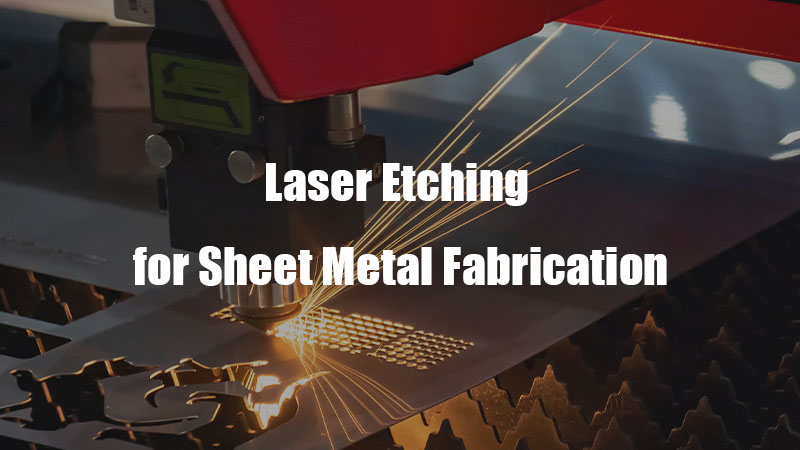Copper is a versatile metal, and it is among the most preferred metals for use. Its excellent conductivity, resistance to corrosion, malleability and recyclability makes it have very high demand.
Why is Copper Rust Resistant?
Copper is a non-ferrous metal. A non-ferrous material lacks iron. Iron is a fundamental ingredient for rust thus making copper rust resistant.
Iron in metals reacts with oxygen and moisture forming iron oxide also known as rust. Copper reacts with oxygen to form copper oxide that sticks to copper and thickens creating a patina. This patina protects copper from corrosion.
Reasons why Copper is Rust-resistant
·Formation of Protective Oxide Layer
Copper reacts with oxygen and moisture in the air to form a thin copper oxide layer on its surface. This layer acts as a barrier protecting the underlying copper metal from further oxidation. This layer shields copper from degradation.
· Stability of Copper
The copper oxide layer is tightly adhered to the Copper surface. It protects the Copper metal from corrosion since it does not degrade over time. Its stability enables the maintenance of Copper integrity in harsh environments.
· Copper’s Self-healing Properties
Copper continues to form Copper oxide in the presence of moisture and oxygen. This helps to cover any damaged areas with a new layer of copper oxide. This self-healing property helps to protect Copper from corrosion.
· Chemical Inertness
Copper is chemically Inert. This means it does not easily react with other substances thus it is less vulnerable to chemical reactions that can degrade the Copper metal.
· Alloying Copper
When alloyed with other metals copper’s properties are enhanced. Copper alloys such as bronze and brass showcase greater resistance to corrosion than pure copper because of supplementary elements such as zinc and tin.
· Natural Antimicrobial Properties
Copper exhibits natural antimicrobial properties that hinder the growth of microorganisms on its surface. This helps protect against any form of biological corrosion. Additionally, it boosts the durability and cleanliness of copper.

Rusting in Copper Alloys
Does Brass Rust
Like copper brass does not rust. Brass is an alloy that consists of copper and zinc. Brass undergoes a process called dezincification. Dezincification is the process of selectively taking zinc out of an alloy, leaving a porous copper-richstructure.
This can easily hinder copper’s integrity in areas with high acidity or in areas where copper is easily exposed to chemicals causing degradation of brass components as time goes by. Generally, brass unlike iron-based alloys can withstand harsh environmental conditions without significant degradation.
Does Bronze Rust
Bronze fabrication is an alloy that consists of copper and tin. It also containsother elements such as aluminium, silicon or phosphorous. Bronze does not not rust as iron but it can degrade under certain conditions.
It is vulnerable to moisture, oxygen and pollutants that may cause it to degrade on its surface. In marine environments, it resists corrosion since it develops a protective patina just like pure copper. The patina acts as a barrier and prevents further corrosion of the bronze.
Even with this, you can also learn how to prevent rust on any metal.
Copper Corrosion vs. Copper Rusting
Copper corrosion refers to a chemical reaction between copper and its environment that leads to its deterioration. Corrosion can occur in various ways such as oxidation, electrochemical processes and chemical reactions with pollutants.
Copper oxide and Copper hydroxide formation are some of the most common copper corrosion. Copper corrosion happens to both pure copper and those with alloys. Corrosion products forma patina, a protective layer that prevents the degradation of underlying copper.

Cooper Rusting Copper is a non-ferrous metal and does not contain iron like other metals. Copper reacts with oxygen to form copper oxide that sticks to copper and thickens creating a patina. This patina acts as a protective barrier that protects copper from corrosion.
Copper Oxidation vs. Copper Rusting
Copper Oxide-Copper reacts with oxygen and moisture to form copper oxide. Copper oxide does not easily thus protecting the underlying copper. It contains a protective layer called a patina that protects the underlying copper metal from harsh environmental conditions.
Cooper Rusting Copper is a non-ferrous metal and does not contain iron like other metals. Copper reacts with oxygen to form copper oxide that sticks to copper and thickens creating a patina. This patina acts as a protective barrier that protects copper from corrosion.

Applications of Copper due to Rust Resistant Properties
Copper is used in plumbing systems and pipelines for commercial and residential buildings due to its durability.
It is used in roofing panels, gutters and downspouts due to their aesthetic appeal and corrosion resistance.
In electrical wiring and components, copper is useful due to its high conductivity and resistance to corrosion.
Copper is used in heat exchangers and HVAC systems because of its ideal thermal conductivity.
Copper is of use in marine and coastal applications since it is resistant to corrosion it helps when it comes to exposure to salty water and moisture. Copper alloys such as naval brass help in marine fittings.
Art and sculpture exploit copper’s durability to make outdoor sculptures, monuments and other architectural details.
It is helpful in food and beverage industries in making food processing equipment, brewing tanks and distillation apparatus. This is because of its antimicrobial properties.
FAQs
Does Copper Rust in Water?
No, copper does not rust in water. It is a non-ferrous material that lacks iron. This means when copper reacts with water it forms copper oxide rather than iron oxide which is also called rust.
How Fast Does Copper Rust
Copper does not rust the same way iron does.How fast copper rusts depends on various factors such as humidity,temperature and other environmental conditions.
Does Copper Rust in Minecraft?
Copper blocks will oxidize over time and turn green.
Does Copper Rust Underground?
Copper is essentially immune to corrosion.
Does Copper Rust Outside?
Copper will never rust for the same reason as bronze.
Does Copper Rust in Salt Water?
Copper is one of the least resistant metals to salt-related corrosion.
Does Copper Rust Faster than Iron?
Yes, iron will ‘decay’ faster than copper or bronze.
Does Copper Rust Easy?
Copper will never rust.
What Color Does Copper Rust?
Iconic blue-green patina colour.
Does Tinned Copper Rust?
Tinned copper conductors prevent accelerated corrosion in wet and contaminated environments.
Does White Copper Rust?
It won’t turn into rust when exposed to oxygen.
Conclusion
Just like other properties such as copper magnetism and copper melting, understanding rusting is critical since it determines whether you can fabricate copper for specific application or not.
Copper is a non-ferrous material that lacks iron. This means that it cannot easily rust. It forms copper oxide when it reacts with moisture and air. the patina is the protective layer that protects underlying copper.
More resources:
What is the Difference between Brass and Copper? – Source: KDM
Is Copper Magnetic? – Source: KDM
Custom fabricated Copper Parts – Source: KDM
Bronze Vs Copper – Source: KDM
The Art of Copper Spinning – Source: KDM
Does Gold Rust – Source: KDM




